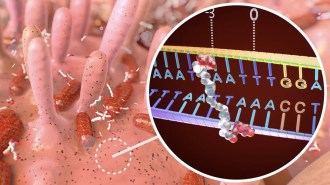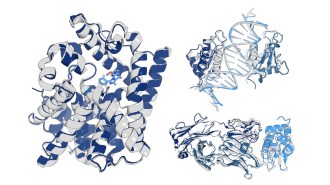- More than 2 years ago
A hormone that regulates the production of red blood cells now comes in a synthetic version. The lab-made hormone could treat anemia in patients with cancer or kidney failure.
Known as erythropoietin (EPO), the natural protein is made in people’s kidneys and is already available as a drug. However, most of this supply is made through genetic engineering techniques. Animal studies indicate that the new chemically manufactured EPO variant, called synthetic erythropoiesis protein (SEP), may work better in patients than the genetically engineered drug does, says Gerd Kochendoerfer of Gryphon Therapeutics in South San Francisco, Calif.
In the Feb. 7 Science, Kochendoerfer and his colleagues report that SEP generated more red blood cells in mice than genetically engineered EPO did. Additional studies on rats showed that SEP also lasted two to three times longer in blood. If further trials demonstrate similar results in people, doctors might opt to switch to SEP, says Kochendoerfer.
The researchers created SEP molecules by stringing amino acids into peptide fragments and attaching polymer appendages to them. The scientists then linked the fragments together and made the complex fold into its specific, biologically active form. The technique may also be useful for chemically constructing other proteins, Kochendoerfer says.
****************
If you have a comment on this article that you would like considered for publication in Science News, please send it to editors@sciencenews.org.






